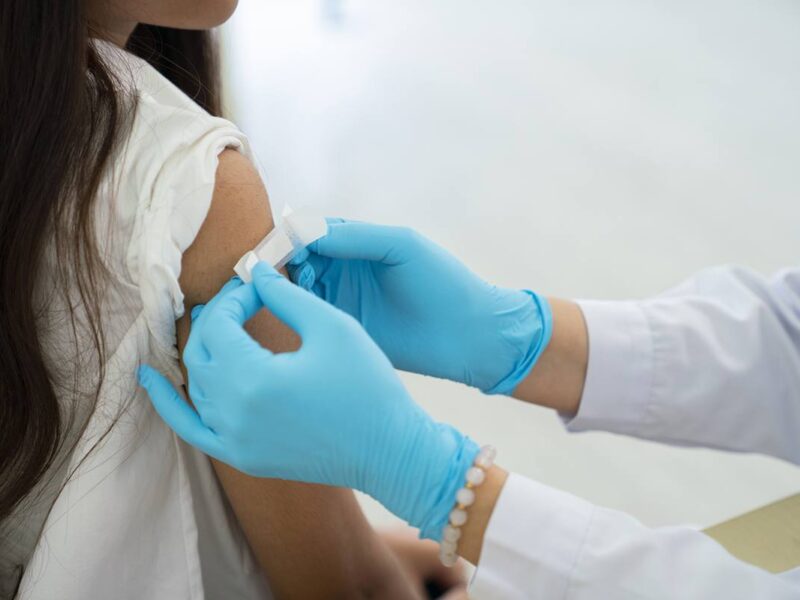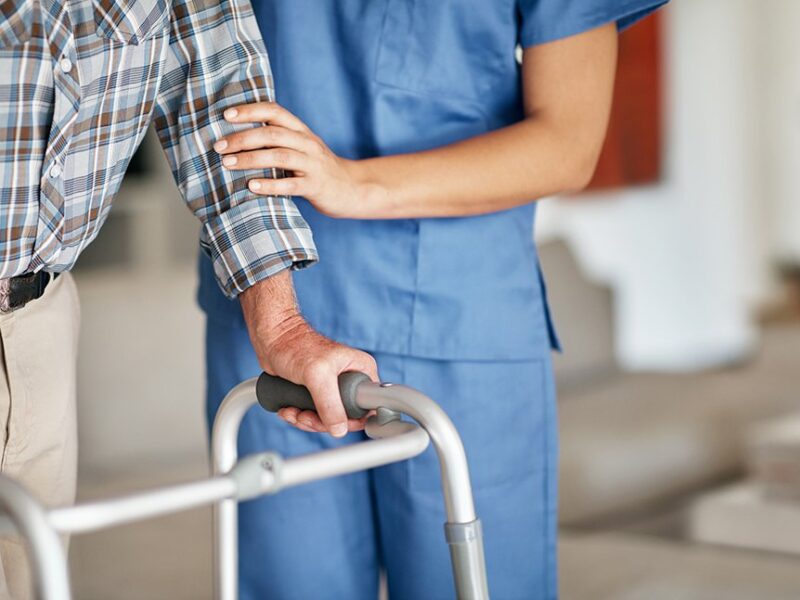COVID-19 Symptoms: What To Do If You Think You’re Sick

As the novel coronavirus pandemic continues to sicken people around the world, most know the importance of hand washing and social distancing. But what should you do if you think you have COVID-19? Texas A&M College of Medicine physician Gabriel Neal, director of Texas A&M Health Family Care, explains what the symptoms look like, when you should see a doctor and how to recover at home.
When should I call my doctor?
“If you have symptoms of COVID-19 like a cough, fever and shortness of breath, you should call your primary care physician to let them know,” Neal said. “You do not need to physically walk into their clinic or into the local hospital to seek treatment. Call your primary care provider first, and they can instruct you on what to do.”
If your symptoms are not severe, your health care provider will more than likely ask you to stay home and quarantine, per Centers for Disease Control and Prevention (CDC) guidelines.
Neal said that you do not need all three of those symptoms, or even any symptoms at all, to have COVID-19. However, a fever, cough and shortness of breath are the three most common symptoms and a definite sign you should call your health care provider for instructions. They may ask you to get tested, but more often than not, they will ask you to self-quarantine and self-monitor your symptoms at home if you’re showing mild symptoms.
Should family members also self-quarantine?
Everyone living in the same household with someone showing symptoms of COVID-19 should stay home to prevent the spread of the illness in the community. If you are in quarantine, you should only leave your residence for essential needs like going to a health care provider or to the pharmacy.
“Even then, if you are showing symptoms, you should ask a friend or family member to pick up your groceries or prescriptions for you. Try to avoid leaving your residence, at all costs,” Neal said. “If you are living with someone with symptoms and leave for an essential reason, you should practice social distancing and frequently use hand sanitizer when on the go. If you do not have hand sanitizer, you should wash your hands before you leave, when you come back and throughout the day.”
How can I manage COVID-19 symptoms while at home?
The symptoms of COVID-19 are respiratory in nature, so Neal said to treat and manage them like you would for the flu or a cold.
“When managing COVID-19 symptoms, feel free to use the same types of medications you would use if you had the flu,” Neal said. “To name a few, think cough syrup, acetaminophen and nasal decongestants.”
In other words, according to Neal, the best medications you can take for mild to moderate cases of COVID-19 are over-the-counter cold and flu medications that are safe to use. Be sure to read the labels and follow dosage directions.
What else can I do to set myself up for a quick recovery?
“For the most part, you will likely need to wait it out until you feel better,” Neal said. “However, you should try to stay hydrated with plenty of water and electrolytes, eat a healthy diet even if your appetite diminishes, and periodically walk around your room or home.”
He also recommends getting plenty of rest to improve your immune system and getting some sunlight to maintain your mental health.
“A person with COVID-19 can expect to have this illness for anywhere between two to six weeks, depending on the severity,” Neal said. “COVID-19 can be quite serious, so do your part and stay home, especially if you are feeling ill.”
If your symptoms get progressively worse or if you find it difficult to breathe, call your health care provider again, as you may need to be hospitalized for more advanced treatment.
This article by Mary Leigh Meyer originally appeared on Vital Record.





